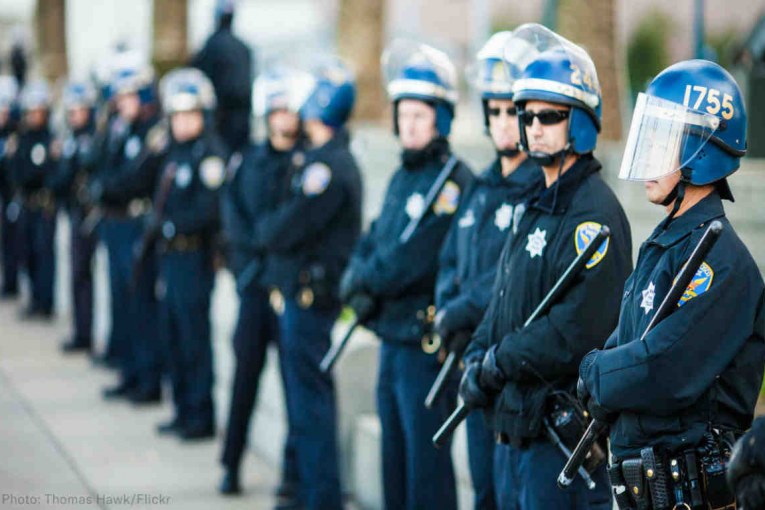

To Supervisors Dorsey, Walton, and Safai and Clerk Victor Young
The Bar Association of San Francisco (BASF) and its nearly 7,000 members write to express our grave concerns regarding the “Proposed Initiative Ordinance – Administrative Code – Police Department Policies and Procedures and Use of Technology.”
BASF is the largest legal organization in Northern California and is dedicated to criminal justice reform. In 2015, BASF established the Criminal Justice Task Force (CJTF), consisting of judges, prosecutors, public defenders, law enforcement, private counsel, civil liberties advocates, and others, to advance and support systemic reforms in San Francisco.
BASF has a long history of supporting best practices and innovative ideas in the area of criminal justice reform, and has been deeply involved with modernizing and improving policing by the San Francisco Police Department (SFPD). We attach a brief history of our involvement.
We appreciate the complexity of policing and we support the adoption of police policies that will withstand Constitutional challenges while supporting a nimble and modern police department. Policing and police policy development are highly prescribed and regulated by the Constitution, State law, DOJ Recommendations that bind the San  Francisco, and well established critical City ordinances. This work, in a word, is complicated.
Francisco, and well established critical City ordinances. This work, in a word, is complicated.
And because it is so complicated — it is not in the interest of San Francisco or best practices to promulgate policing operational policy at the ballot box.
Our position is consistent with BASF’s and Chief William Scott’s clearly stated positions in 2018 when the Police Officers’ Association asked voters to decide on a ballot initiative regarding SFPD’s adoption of Tasers. In his letter to the Director of San Francisco’s Department of Elections, Chief Scott wrote: “It is not a national best practice to promulgate policing operational policies… by voter majority or a four-fifths vote of a legislative entity such as the Board of Supervisors. This responsibility to set and make policy adjustments and the responsibility to manage the operations of the Department should rest with the Police Commission and the Chief of Police respectively.” He added, and we agreed then and now, that a ballot initiative which sets police policy is the “antithesis of the spirit of many of the US DOJ COPS Office recommendations.”
Notably the majority of the Board of Supervisors, including then-Supervisor London Breed, joined Chief Scott and BASF in opposing the 2018 ballot initiative for the same reasons the current Ballot proposal should be withdrawn or opposed.
As noted by Chief Scott, the primary responsibility to set policy rests with the Police Commission. The authority for the Commission’s responsibility is found in Sections 4.102 and
Section 4.109 of the City Charter. The U.S. DOJ at page 141 of its 2016 Collaborative Reform Initiative Report unequivocally states: “Therefore, the Police Commission is the authority that publishes policy for the SFPD.” As such, the US DOJ Recommendations have established a co1nplex process and timeline, expressly identifying the role of the Commission, SFPD, and the Working Groups to accomplish compliance with the 272 Recommendations.
Without seeking an amendment to the City Chatter through ballot initiative, this proposed ballot measure is a back door effort to circumvent the Police Commission; as such, it is clearly vulnerable to legal challenge.
In addition, the City has entered into a series of Memorandums of Understandings (MOUs) with the California Depa1tment of Justice commencing Februa1y 5, 20 l 8 requiring: “The Mayor’s Office and SFPD will implement all 272 recommendations as set forth in the US DOJ Report pursuant to a timetable and work plan [referenced further in the MOU].” To date, while significant progress has been made, the work is not yet complete. Several DOJ Recommendations as well as the MOUs are jeopardized by this ballot measure.
Finally, the ballot measure conflicts with at least two important City ordinances, notably 96A and 19B, both of which were drafted with great care and research, giving rise to additional legal challenges.
As we describe in our lengthy memo which follows, each part of the ballot measure has significant problems.
The Collaborative Initiative Reform, as promulgated by the US DOJ and followed by the SFPD and the Police Commission, works and is working. Significant and complicated reforms are in place due to the hard work of everyone who rolled up their sleeves and committed to work together. The work is complex and should be.
This ordinance, should it remain on the ballot and succeed, will set all progress back, and subject this City to countless legal actions given all the ways in which it contravenes laws and regulations.
We have committed and continue to commit to doing all that we can to support a modern and nimble police department able to respond to this City’s complex policing needs with safety and respect. We stand ready to help in all ways needed and possible, but, given the grave consequences of this proposed ordinance, we felt it was incumbent on us to raise these important concerns at this time. We hope you will find our input helpful.
Signed
Vidhya Prabhakaran
President, Board of the Bar Association of San Francisco
